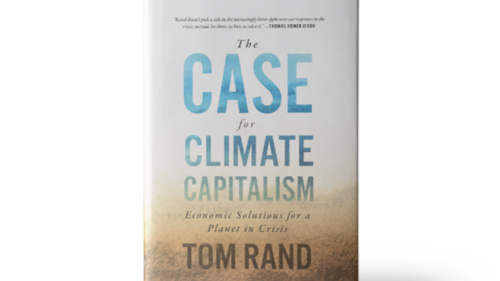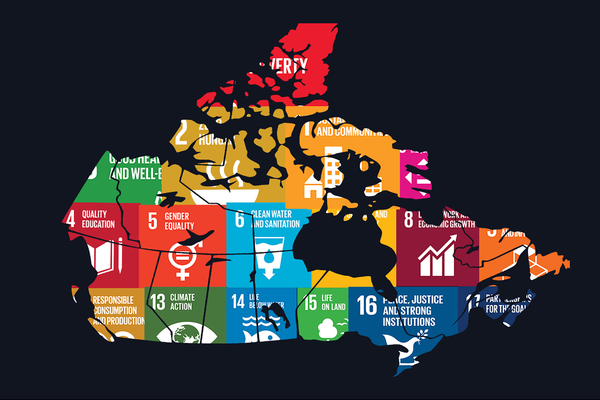
Capitalizing on climate solutions
How rethinking our economy can save the world

How rethinking our economy can save the world
By Natalie Quinlan University Relations
> Tom Rand (BASc '91)
> Managing Partner, ArcTern Ventures
“Just use what works and get on with it.”
When it comes to the complex issue of climate risk, Tom Rand (BASc '91) likes to keep things simple.
The entrepreneur, venture capitalist and author is urging industry leaders to take a pragmatic approach — but not in the traditional sense.
For Rand, slow and steady no longer wins the race.
Rand, who will be keynote speaker at the University's upcoming Waterloo Innovation Summit, has transformed the conversation on climate change from a political to an economic one, where climate capitalism — the act of reshaping the economy in ways relevant to the degree of climate risk — takes centre stage.
“There’s a necessity of deep rewiring of our economic system, so not nibbling around the edges, but really asking the question: ‘What kinds of interventions in a market-based economy are required to really minimize or reduce climate risk, independent of your political position?"
Moving across the aisle means industry leaders must be open to publicly discussing climate risk in real-talk, dismantling false information and addressing it head-on.
“I think it’s really important for business leaders to stand up and say: ‘I may not have all the answers, but I acknowledge this threat is real and I will work my butt off to ensure I’m part of that solution,’” Rand says. “If business leaders can’t do that, they’re on the wrong side of history.”
But to have this climate narrative stick, Rand continues, industries must be able to articulate the self-interested benefits that consumers and governments could expect from having a horse in the race against climate change.
“That’s a way to get people to open up to the problem because they visualize a solution, they see themselves benefitting from that solution,” Rand says.

“The Case for Climate Capitalism – Economic Solutions for a Planet in Crisis” is Rand’s third book on climate issues.

Read more
Urban engineering chair argues we have a golden opportunity to do it right, with a concerted effort, when we do go back to a new normal

Read more
Speakers series generates dialogue and action on the world’s most pressing issues.

Read more
Waterloo’s partnership with the United Nations lays out a course for a better future we can all achieve together
The University of Waterloo acknowledges that much of our work takes place on the traditional territory of the Neutral, Anishinaabeg, and Haudenosaunee peoples. Our main campus is situated on the Haldimand Tract, the land granted to the Six Nations that includes six miles on each side of the Grand River. Our active work toward reconciliation takes place across our campuses through research, learning, teaching, and community building, and is co-ordinated within the Office of Indigenous Relations.